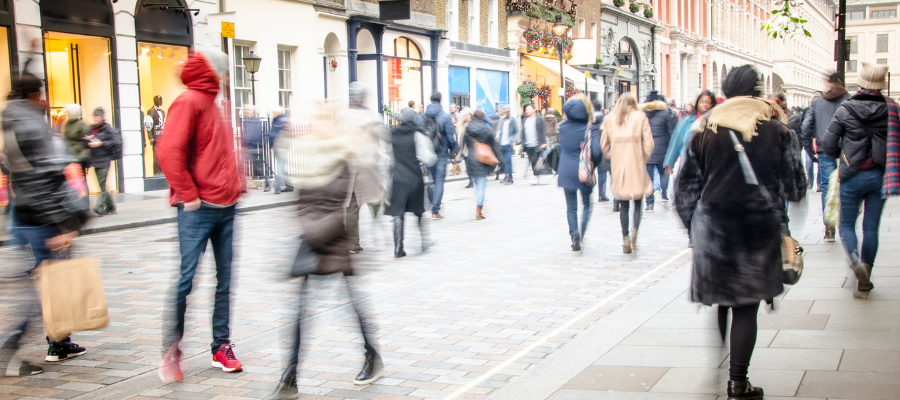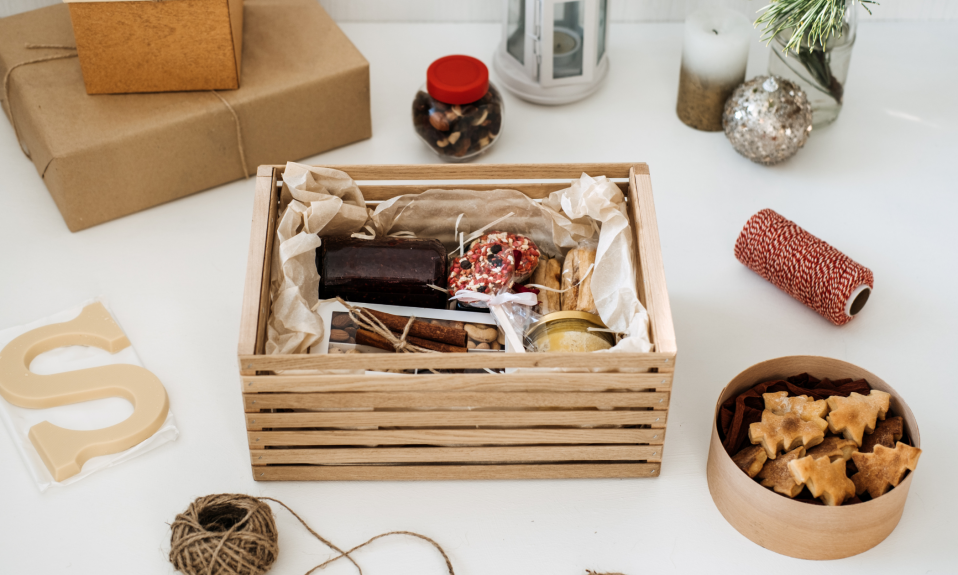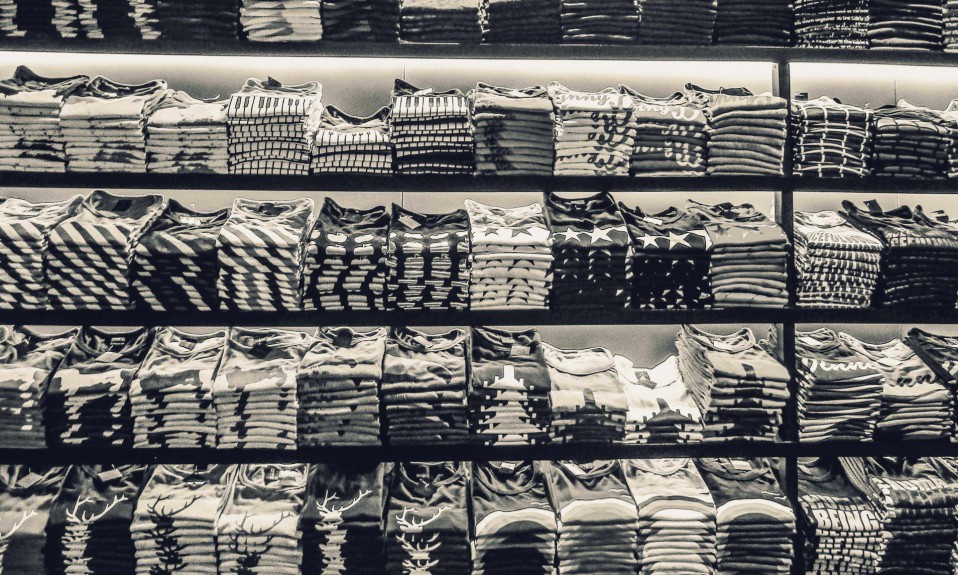A foreword from CEO Antony Chesworth
The past six months have been trying times for the entire world and we as a nation have also been put to the test on our ability to adapt to new and strange circumstances and deal with the after-effects.
We’ve seen the world go from a hustle and bustle to complete silence as we went into lockdown. The world stopped for months at a time. People were asked to work from home and some were furloughed or even lost their jobs.
There were many concerns about how this would affect us as a country, how it would affect individuals, families as well as businesses. We saw our high street shops, restaurants and much more close in mid-March 2020 with business owners left in the dark. Uncertainty was in the air while the Government provided daily advice, guidelines and messaging to stay at home and protect the NHS.
The spread of COVID-19 and how quickly it was able to shut down not just entire countries but the entire world, is not just a terrible thing but perhaps also an opportunity. In this report, we asked business owners around the UK for their thoughts, feelings and experiences throughout lockdown and how it affected them and their business.
We wanted to hear from business owners what running a business through lockdown was really like. We’ve witnessed some businesses thrive whilst others struggled. And as a business owner myself, I’ve been a champion for small business owners for many years and think it’s important to take a look at the wider picture.
This lockdown has demonstrated to many business owners the importance of selling online. Some in this circumstance we’re left without any revenue streams or were quickly scrambling to sell online. But those who already sold online saw huge increases in demand for their products and we saw our customers orders double almost instantaneously after the lockdown was announced.
This increased demand exceeded the rate of any previous Black Friday sales and what’s more, continued to stay at this level for 2 or 3 months. While the lockdown has been bad for some and amazing for others, we’re going to now delve into the detail of our research and experiences from our own customers.
Introduction
EKM set out to investigate and report on the occurrence of the coronavirus outbreak with regards to how it affected UK businesses. We surveyed our customer base including their thoughts and feelings about the effects as well as open-ended questions about their own personal experiences. Detailed in this report are the results of our survey from our customers’ anonymous answers which helped us to create a clearer understanding of the impact COVID-19 has had on them.
EKM is the highest rated ecommerce platform in the UK and has helped over 80,000 businesses sell online since 2002. We believe that everyone should do what they love which is why we feel that research on the impact of COVID-19 on businesses is vital in providing a better understanding of the financial, economic and personal impacts.
Overview
We’ve seen that the UK has been affected economically by the coronavirus already, with many businesses and individuals seeking support from the Government as the UK went into lockdown. There have been many projections and estimations about how severely the UK has been affected by this however, our report focuses on the opinions and experiences of our customer base.
The majority of participants operated their businesses online only, however there were around 27% of participants who also ran brick and mortar businesses. The participants have businesses across a wide range of industries.
We’re going to explore their responses in detail and look at the impact the first six months of 2020 has had and how this may affect not only their businesses going forward but also online shopping habits.
Online vs offline
The transition to selling online for many businesses hasn’t always been widely adopted and due to the circumstances of high street shops being closed, we asked participants if they also had a brick and mortar shop as well as their online shop.
26.52% of participants answered that they also had a brick and mortar shop. While our customer base is predominantly online retail it was interesting to see that over a quarter of the participants operated a physical shop as well.
Over a quarter of respondents said they also ran brick and mortar shops
Brick and mortar closures
This of course meant that their shops were closed and their only other source of income was their online shop. Interestingly, of those who had to close their high street shops, 62.65% said that the closure of their shop had no effect on their business on a scale from 1-10 (1 being not affected and 10 being very affected). And only 21.48% said that closure had a major impact on their business, giving a rating of 9 or 10.
63% stated that closing their brick and mortar shop had no effect on their business
While 6.77% of respondents made the decision to close their online businesses, the majority, 93.23% kept their online shop open and directed any existing customers there. The closure of brick and mortar stores has had an impact on many major retail businesses, with many going into administration and some having to reduce their employee numbers.
We are also seeing local lockdowns putting more SME businesses at risk again after being able to reopen for a short period of time and then having to close. But in the beginning days of our national lockdown, many businesses were scrambling to ensure that they could continue operating in some way – many turning to their online solutions or moving their operations online.
We then saw a huge uptake in people opening online shops in a bid to retain their revenue and serve their customers. For those who had never sold online before it was a steep learning curve with harsh consequences if not done in a timely manner. For those who already sold online, communicating with their customers was a top priority, to reassure customers and ensure their business’s cash flow.
Opening of online shops
The closure of high street shops meant a lot of businesses who never had a need to sell online before, suddenly were in dire need of opening an online shop and quickly turned to the internet to provide answers.
100% increase in online orders for EKM customers
We saw a 100% increase in online sales on our customers’ shops throughout lockdown, which was almost 100% higher than any previous Black Friday or Cyber Monday levels. The rush of people setting up online shops was either as an extension of their brick and mortar shop or as a new venture due to termination or having been furloughed. It also sparked a new trend for setting up businesses in the midst of lockdown. People began to rely upon themselves and their own talents to create income streams and that’s where online shops came in.
Research from Growth Intelligence has found that more than 85,000 new online businesses were launched over the past four months and businesses in nearly every sector have accelerated to meet the growing demand for online shopping.
In the early days of the lockdown, advertisers pulled more than £1.1billion in spend resulting in a 48% fall in ad spend. This is a 7.5% decrease from 2019 and is mainly due to the lack of spending on traditional media. The news of the stay at home order had advertisers and marketers spooked initially with many small business owners pulling their ads too.
However, this quickly changed when the realisation hit that everyone now needed to shop online to find their items.
Many businesses found that by actually increasing their ad spend instead of pulling it, and isolating their audience segments further to create better targeted ads, they were able to increase their orders and traffic to their online shop.
For many, especially the participants of our survey, during this time their online shop was the only way to keep generating income and some businesses who were traditionally brick and mortar had to come up with creative ways to serve their customers online.
Thoughts and opinions
As a business who advocates for other small businesses, we wanted to hear the thoughts and opinions of our customers and how their lives have been affected by COVID-19.
Sentiment by industry
Books & Literature
100% of respondents stated that they had been in business for 10 years or more. Perhaps somewhat unexpectedly 75% of respondents who answered stated that they had a brick and mortar shop as well as their online shop and only 25% said they chose to close their online business. 75% stated that they received additional support to help their business continue functioning.
Business owners within this industry stated that their main concern was cash flow initially but 75% said they saw an increase in sales during lockdown – most likely due to the increase in people being furloughed and having the time for reading.
One business owner commented:
“Extra orders were extremely welcome. I am now concerned that they will drop off again!”
Clothing
Within the clothing industry, 56% stated that they had been in business for 10 years or more and 50% were based in either London or the South West of the UK. A third of participants in this industry stated that they also operated a brick and mortar shop alongside their online shop. Surprisingly in the run-up to lockdown, 11% chose to close their online shops as well.
56% saw a decrease in sales during the lockdown period
A huge 56% saw a decrease in sales during the lockdown period with only 11% reporting no major changes in their sales. Primary concerns in this industry were cash flow, a decrease in orders and a need for additional support.
“It was not as bad [as] I thought it would be (as the business owner). Sales were still coming through but obviously those were not incredible times sales-wise. There was a huge sales rush just after the lockdown ended. Take care.”
“Some of the questions above did not apply to us, the main effect we had from COVID was that it delayed us opening our shop for three months as we were unable to get our stock when planned, so the main concern was when could we actually start. We had certain expenses coming out such as website payment.”
“As things are eased, there is no instant return to pre-COVID sales. The next year will be almost like starting again. We will all need landlords etc to be patient for bills to be met.”
“It’s hell. I don’t know if I will make [it] through the winter. No events mean no market for my products. I also sell at events which drives traffic to my site”
Home Improvement & Furnishings
50% of participants who operated within the home improvement and furnishings industry stated that they had been in business for 10 years or more and the majority were based in the South East of the UK. 16.67% stated that they also operated a brick and mortar store with the majority being online only.
A large majority of participants, 67% stated that they didn’t receive additional support to keep their business running throughout lockdown and all respondents chose to keep their online business open.
67% didn’t receive additional support within this industry
Meanwhile, 87.5% said they felt financially comfortable enough to support themselves throughout lockdown and 50% said they saw an increase in sales – interestingly enough ¼ said they saw a decrease in sales and ¼ also stated that there was no change. Their major concerns were a decrease in orders and cash flow.
“During the lockdown, we were not affected as we are 100% online. I am worried about the economy after as we are seeing major job losses etc and the effect this will have on our sector, having said that the house building side might pickup”
“It has been a ‘doom boom’ for us as people on furlough improved their homes then came shopping for decor, with no competition from the high street”
“COVID-19 had a positive impact on my online business, more people had time to browse and discover my site, more people were decorating and looking for finishing touches. The value of my orders increased and I had trade enquiries from interior designers etc.
Most of the orders received turned out to be bespoke, made to measure etc but the site itself had grabbed their attention and gave them ideas. I am still much busier than I have been for a couple of years, though I had worried once potential customers returned to work my business level would decline”
Jewellery / Watches
60% of participants within this industry stated that they had been in business for 10 years or more and the majority are based in the South East of the UK with the remaining split over the North West, Midlands and Wales.
40% noted that they also ran a brick and mortar shop alongside their online shop. The majority of respondents also stated that they didn’t receive any additional support throughout lockdown (80%) and ¾ also said they felt they were able to support themselves financially.
¾ of businesses in the Jewellery / Watches industry said they felt they could financially support themselves throughout lockdown
There was an even split between those who saw an increase in sales and those who saw no major changes with 20% stating that they saw a decrease in sales. Their major concerns were a decrease in orders, cash flow, and business funding.
“COVID-19 has given us pluses and minuses. We aren’t able to do the bread and butter sales, as in watch batteries, straps and repairs, but the positive is the increase in online sales”
“A lot of my bricks and mortar trade is linking with the wedding industry so all my bridal orders were cancelled for the year. My online business suffered mainly to lack of orders, when people are worried about the month they tend not to buy jewellery.
After 12 years this year may be the last if things don’t turn around soon. I’ve struggled with online visibility constantly losing out to the big companies like eBay, Amazon and even Wish. I can’t afford Google or Facebook Ads and have to rely on what I can do for free on social media.”
Crafts
There was an even split between respondents in this industry stating they had been in business for either 5-10 years or 10+ years and the majority are based in the Midlands, with the remaining spread over the UK.
Only 15% noted that they also ran a brick and mortar shop alongside their online shop with the majority, interestingly only operating online. However, 46% stated that they did receive additional funding to keep their business afloat and the majority of those respondents said they felt the support received was really helpful, giving a rating of 9 or 10. For those who didn’t receive any additional support, 100% of the respondents said they felt that they could financially support themselves throughout lockdown.
46% of respondents in the craft industry received additional funding and rated the support a 9 or 10 in helpfulness
A huge 92% said they saw an increase in sales throughout lockdown, unsurprisingly people were online searching for projects to do from home and the craft industry definitely benefited from this. Their biggest concern was an increase in orders shortly followed by no concerns.
“Brick and mortar sales were obviously down despite doing doorstep deliveries, but did have a rise in online sales”
“With so much unknown at the start, it was concerning that we may be forced to shut. This was a blow as the beginning of March was already proving to be our best month yet due to changes we’d made already. Fortunately, only a momentary slump happened and quickly any concerns were squashed. What has proceeded since has been our best months of trading by far!
This extra, while difficult to adapt to due to the sudden change, has ultimately allowed us to increase our offering and expand. At present things have calmed down a little but I am still on course to continuing forward in a stronger position. Whilst so many have struggled due to the restrictions, the experience for myself has been a positive one which seems wrong to say but is definitely the case”
“Because we are a sewing shop, our online sales rocketed. People in lockdown wanted to sew. Also we sell exactly the fabric and elastics needed to make fabric face masks, so demand for our products far exceeded staff availability to pack/dispatch. It was good to be busy, but we were also exhausted. And there was little time for the owner to address financial planning [and the] other side of the business was severely impacted). We are worried about a ‘second wave’ and how this will affect our retail stores”
“I’m amazed at how busy I was, my turnover was 1000% higher than average across my EKM, Amazon and eBay stores which meant I needed help so all the furloughed family came on board!”
Health & Beauty / Makeup & Cosmetics
The majority of participants that stated they were in the Health & Beauty / Makeup & Cosmetics industry had been in business for over 10 years or more (50%) with the remaining 50% being split evenly between 1-2 years and 3-4 years in business. ⅔ are based in the midlands while the remaining stated they were based in London.
¼ of respondents in this industry stated that they didn’t feel able to support themselves and their business
Surprisingly 100% of respondents in this industry stated that they didn’t operate a brick and mortar shop alongside their online business and no respondents reported that they received any additional support for their business. 25% mentioned that they didn’t feel they were able to support themselves without additional support but they may not have been able to access this support.
Respondents also reported that they saw an increase in sales during lockdown with people searching for their items solely online; they had no competition from the high street.
“We were very lucky to find ourselves owning a business that was more in demand during COVID-19 at the start. I know a lot of small business owner who have either gone under or closed due to lack of business”
Food & Drink
42% of participants stated that they had been in business for 10 years or more shortly followed by those who said they had only been in business for 1-2 years with the majority being based in the North West.
One third also stated that they also operated a brick and mortar shop and 43% received additional support to help them throughout the lockdown with none of the respondents choosing to close their businesses altogether. And half of the respondents within this industry stated that they felt they were able to support themselves financially. Unfortunately, 71% noted that they witnessed a decrease in sales during the time with only 29% stating that they saw an increase in sales.
43% received additional support to help their business stay afloat
Participants in this industry stated that their main concerns were cash flow (71%), business funding (57%) and a decrease in orders (43%).
“As someone who has staff at my premises, there was a severe lack of guidance for weeks. I spent hours reassuring my suppliers and my customers. It was exhausting and I still think the worst of the economic times are yet to come. COVID, Brexit and huge job losses are going to combine into a huge shift in customer mindset and behaviour.”
“In order to clear the date marked stock we had to open to the public. Our EKM shop which over 3 years had seen little use was adjusted for public use and publicised through social media. The response was amazing. Most of our redundant ‘stock in danger’ was shifted over the first few days and demand for the store continued to grow. We have now developed this into a retail arm of the business and opened up a completely new revenue stream.”
Garden / Outdoor
The overwhelming majority of respondents reported that they had been in business for 10 years or more and most of them are based in the South East of the UK. Surprisingly only 38% stated that they also ran a brick and mortar shop with the majority being online only.
37% received additional support whilst in lockdown with 12% choosing to close their online shop. Of those who didn’t receive additional support, 100% reported that they felt they could support their businesses financially throughout this period. All respondents noted that they saw an increase in sales and this being their major concern shortly followed by cash flow (50%) and business funding (33%).
50% of respondents stated that cash flow was a major concern for them
“It has become vitally important to have open communications with our UK suppliers especially those with UK call/customer services. We love EKM because we have a dedicated UK based manager to support us during issues and who is now trying to help us improve our shop offering.”
“In March I had Covid-19 and my business was shut down for weeks but I decided to open up online and then had my busiest April ever!”
Sports / Recreation
Over half the respondents within this industry stated that they had been in business for 10 years or more and were mostly based in the North East of the UK and Wales. 89% noted that they did not operate a brick and mortar shop and only 11% in this industry chose to close their online shops.
⅓ felt that they couldn’t support themselves financially during this period
Two thirds stated that they did receive additional support throughout lockdown whilst the other third noted that they felt that they could support themselves and their businesses financially. Meanwhile over half of respondents noted that they saw a decrease in sales throughout this time, and ⅓ saw an increase in sales with the remaining noting no change. Their major concerns were a decrease in orders (43%), cash flow (28%) and no concern for some (28%).
“Business depends on people going fishing. As this didn’t happen during lockdown we had a decrease in orders. Luckily this was one of the first sports to be relaxed so we were not affected too badly and probably benefited after the easing as people were anxious to get out and about again. Of course we do not know yet how the economic downturn will affect us.”
“I was sitting on plenty of stock, I don’t employ anyone and we own our building so our overheads were quite low. My online store has certainly had a boost with more people deciding to spend money to allow themselves to enjoy more water-based activities in this country.”
Toys & Games
Respondents noted that three-quarters of them had been in business for 1-2 years whilst the remaining had been in business for 3-4 years and the majority were based in the Midlands followed by the North West of the UK and Wales.
Half of the respondents said that they felt financially stable enough to support themselves and their businesses
All respondents within this industry reported that they only operated online and 25% stated that they did receive additional support throughout this time and ¼ did choose to close their online business. Meanwhile, 66% noted that they felt they could support their business financially unaided and 50% of the respondents said that there was an increase in sales whilst the remaining were split between a decrease in sales and no change at all. Main concerns for these participants were a decrease in orders (50%), cash flow (25%), and an increase in orders (25%).
“Initially in the first month of lockdown I saw a spike in orders as people were buying things to keep themselves occupied. Since then orders have dropped, I suspect due to people being furloughed and having less income. Overall orders are up slightly. Maintaining stock levels has been a big problem as supply chains around the world have been impacted due to manufacturers operating at reduced capacity or shutting down completely as well as the impact to shipping. Many new lines have been seriously delayed.”
We can see from these responses that all industries have been affected by COVID-19, some more than others but it’s interesting to know that the majority of respondents felt that they could financially support themselves throughout this – around 90%.
90% of respondents stated that they felt they could support themselves financially
However, this is not the case for some and with concerns ranging from cash flow issues to stock availability and funding to name a few, the future for some businesses may not be so easy to predict going forward.
“I’m concerned that this will be a further nail in the coffin of the High Street (I used to have a bricks & Mortar shop). Although there also seems to be a drop off in sales now shops are open, so maybe people will appreciate their local shops more now?”
Support
During the lockdown, many businesses expressed their concern for their financial wellbeing due to social distancing rules and the stay at home order. The Government responded with additional support for businesses including a furlough scheme for employees, additional business loans and grants.
55% had no additional government funding
We asked our respondents if they had any of this additional support to which 53.79% said no and many commented that they simply couldn’t access the funding being provided or felt that they didn’t need it.
“There has been a very real issue with regards to accessing the Bounce Back loan which is essential for businesses in our sector and this has severely affected our cash flow as we have been operating at 85% down on normal volumes and at some points 100% down.”
“Sole trader businesses that make less than £10,000 were offered no support.”
For those who did receive support, the majority (35%) stated that on a scale from 0-10 the support received was not helpful, giving a 0 rating. This was shortly followed with 22% of respondents stating that the support was very helpful and rating it a 10. However for the participants of this survey, it seemed that other concerns that we talked about previously took priority over financial support with the majority of them already selling online.
Participants were also asked if they felt if they were able to financially support themselves without any additional help to which 90.91% answered yes.
90% stated they felt they could financially support themselves
However, 25% of participants within the Health and Beauty industry and 43% within the Food and Drink industries felt that they couldn’t support themselves throughout the lockdown and needed additional support. So were these industries more affected by the impacts of lockdown? Absolutely. Despite these participants also having online businesses, stating that they felt they couldn’t support themselves without additional government support suggests that the decrease in people’s spending habits had an adverse effect on businesses within this industry.
This could be due to the majority of their usual business being done in their brick and mortar shop and their customers’ lack of awareness of their online presence. We don’t know for sure but from our research, these industries seem to have been more affected by COVID-19.
Supply and demand
Over the course of the lockdown we saw large numbers of businesses struggling to keep up with online demand as shops shut their doors and spending increased. Suppliers struggled to get shipments delivered to countries around the world and some products in particular were simply impossible to find online or in store.
Demand for essential goods skyrocketed, supermarkets were running out of everyday items such as water, toilet roll and so on. This issue with supply and demand wasn’t just felt by the big corporations but also small businesses, sole traders and freelancers all across the country.
“The main factor is going to be stock availability. Our suppliers use factories in South America and the Far East and both areas have been hugely affected by the pandemic and manufacturing has been stopped due to their local lockdowns. This will add considerable lead times even before the containers are shipped, the result is that we are now seeing availability of some ranges extended to November and we fully expect this to affect most of our portfolio.”
During this period, some products were simply unpurchasable and with the world on lockdown, other areas and industries began to also see the impact of supply and demand.
The impact on sales
A positive outlook for some
The impact that COVID-19, the supply and demand issues as well as the lockdown had on businesses all over the world was something that we’d never seen before. But it wasn’t all doom and gloom, some business began to thrive and had their best year to date.
“In early March I was fearing the worst, by the end of the month it was clear that sales were increasing at a rate that was unprecedented!”
“We were very lucky to find ourselves owning a business that was more in demand during COVID-19 especially at the start. I know a lot of small business owners who have either gone under or closed due to lack of business.”
“We feel so fortunate that we were already on line and ran our business from home so we were able to carry on. At one point we were dispatching triple of what would be a normal year – it was crazy for a while!”
We had customers reporting unprecedented levels of sales, some say 2 or 3 times more than previous years. Some even had to close their marketplaces such as Etsy and Ebay in order to cope with the demand. This boom came from people who had been furloughed at home or were working from home and were looking for things to keep entertained. The biggest industry boom was across, Fitness and Wellbeing, Hobbies and Crafts and more as people adjusted to a new way of living – from home. But it wasn’t all sunshine and rainbows for everyone and very much still isn’t.
Those who have been hard hit
For some, the lockdown has had a very negative impact on their business as we’ve seen from supply and demand issues, to simply not having the cashflow or financial support available to keep their business afloat.
Some, have sadly had to shut their doors either temporarily or permanently due to the prolonged lockdown which has of course had a severe impact on small businesses and the economy.
“As someone who has staff at my premises, there was a severe lack of guidance for weeks. I spent hours reassuring my suppliers and my customers. It was exhausting and I still think the worst of the economic times are yet to come. COVID, Brexit and huge job losses are going to combine into a huge shift in customer mindset and behaviour.”
It seems that in the early days the lack of guidance was worrisome for most while more recently the effect on the economy has been in the forefront of people’s minds. But it’s not just business owners that are now seeing the effects, but the employees that they had to furlough as well as those who have lost their jobs entirely, with perhaps more to join them.
Looking forward
Ecommerce
It’s clear that the world is changed forever, as is the ecommerce industry, and where some may not have believed they needed an online presence, this year may have changed their minds. Online isn’t just an accessory for your business but it should be at the core of driving your business.
Online has become more important now than ever before and may have propelled online shopping and retail quite a few years into the future. We’re seeing new technologies popping up to resolve issues found with shopping online such as AR and VR, and we’re now transitioning to a world where online shopping is preferred. We wholeheartedly believe here at EKM that the future is digital and most aspects of our lives are now and will continue to be more involved with digital technology in the future with the retail and ecommerce landscapes continually changing, adapting and improving.
Brick and mortar
Is this it for brick and mortar shops? We don’t think so. And we think that brick and mortar shops need to be around to provide a complete experience for customers. Choice is the number one thing for most customers, whether that be choosing to shop online or on the high street, choosing quality over price or choosing availability.
We believe that even though most industries will fully transition to an online system, brick and mortar is still an integral part of the customer journey and shouldn’t be dismissed. It will simply evolve to meet new technological advancements, create new opportunities for businesses going forward.
*Survey based on a total of 132 anonymous participants from the EKM customer base surveyed between June and July 2020. For more information or data requests from this survey please contact [email protected].
If you’d like to learn more about setting up your own online shop, read on for more insights into running your own online business here.









